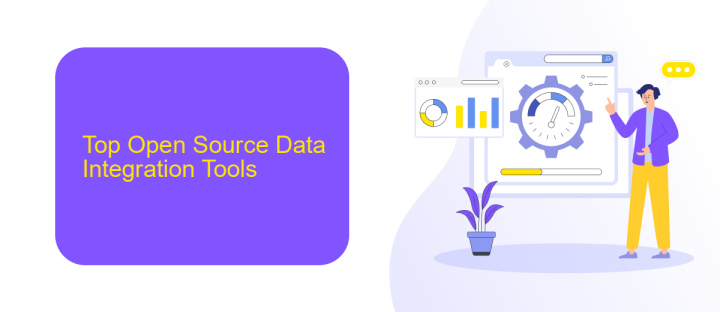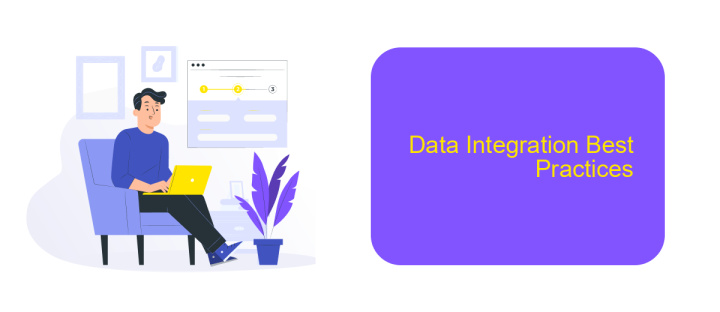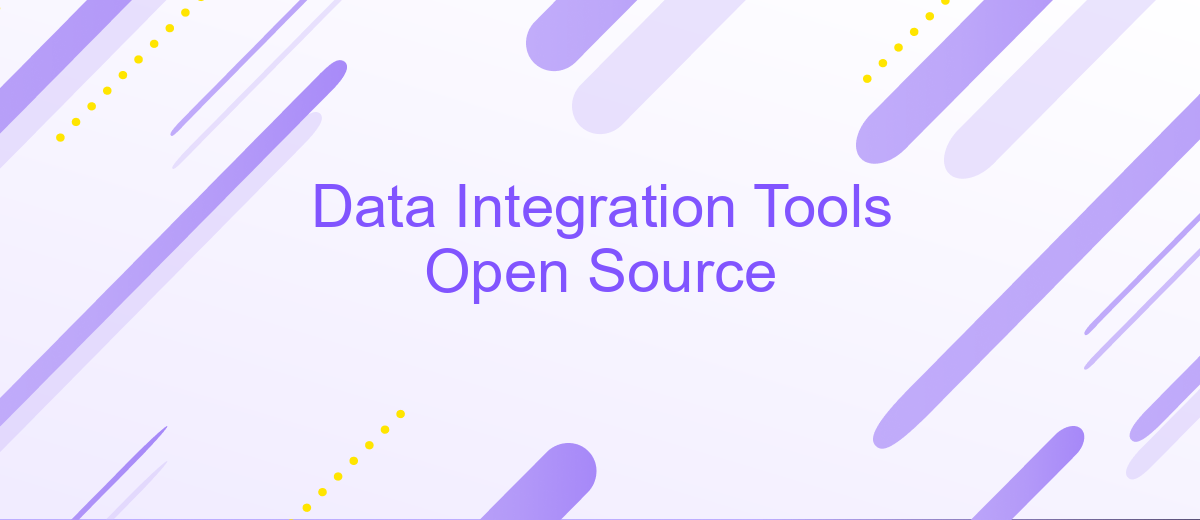Data Integration Tools Open Source
In today's data-driven world, the ability to seamlessly integrate diverse data sources is crucial for businesses aiming to gain actionable insights. Open-source data integration tools offer a cost-effective and flexible solution, empowering organizations to unify disparate datasets. This article explores the top open-source data integration tools, highlighting their features, benefits, and how they can transform your data management strategy.
Introduction
Data integration is a critical aspect of modern data management, enabling organizations to consolidate data from various sources into a unified view. Open-source data integration tools are particularly valuable as they offer cost-effective, flexible, and customizable solutions. These tools help businesses streamline their data workflows, improve data quality, and enhance decision-making processes.
- Cost-effective: Open-source tools eliminate licensing fees.
- Customizable: Tailor the tools to meet specific business needs.
- Community Support: Benefit from a robust community of developers and users.
One notable example of an efficient data integration tool is ApiX-Drive. This service simplifies the process of setting up integrations between various applications and services, making it easier for businesses to automate workflows and synchronize data. By leveraging tools like ApiX-Drive, organizations can ensure seamless data integration, leading to more accurate insights and improved operational efficiency.
Top Open Source Data Integration Tools

Open source data integration tools are essential for organizations looking to consolidate data from various sources efficiently. Among the top tools available, Apache NiFi stands out for its user-friendly interface and robust data flow management capabilities. Talend Open Studio is another popular choice, offering extensive features for ETL (Extract, Transform, Load) processes, making it easier to integrate data from different origins. Both of these tools provide the flexibility and scalability needed for complex data integration tasks.
For those seeking automated data integration solutions, ApiX-Drive is a noteworthy mention. This service simplifies the process of setting up integrations between various applications and platforms without requiring extensive coding knowledge. With its intuitive interface and wide range of supported services, ApiX-Drive enables seamless data synchronization and automation, making it an excellent choice for businesses aiming to streamline their data workflows. These open source tools and services collectively offer powerful solutions for effective data integration.
Factors to Consider When Choosing a Tool

When selecting an open-source data integration tool, it's essential to evaluate several factors to ensure it meets your organization's needs. The right tool can streamline processes, improve data accuracy, and reduce manual work.
- Compatibility: Ensure the tool supports the data sources and destinations you use.
- Scalability: Consider whether the tool can handle your current and future data volumes.
- Ease of Use: Evaluate the user interface and the learning curve for your team.
- Community Support: A robust community can provide valuable resources and troubleshooting assistance.
- Customization: Check if the tool allows for custom integrations and workflows to match your specific needs.
- Security: Ensure the tool complies with your organization's security standards and data privacy regulations.
For instance, ApiX-Drive is a versatile service that simplifies the process of setting up integrations between various platforms. Its user-friendly interface and extensive compatibility make it a valuable option for businesses looking to automate data workflows without extensive technical knowledge. Always consider such tools that offer a balance of functionality and ease of use to maximize efficiency and productivity.
Data Integration Best Practices

Effective data integration is crucial for ensuring seamless data flow across different systems and applications. To achieve optimal results, it's important to follow best practices that enhance the accuracy and efficiency of your data integration processes.
First, always start by understanding your data sources and the specific requirements of your integration project. This helps in choosing the right tools and approaches for the task. Additionally, ensure that data quality is maintained by implementing validation and cleansing mechanisms.
- Define clear objectives and outcomes for your integration project.
- Utilize robust data integration tools like ApiX-Drive to automate and streamline the process.
- Implement data validation and cleaning to maintain high data quality.
- Regularly monitor and audit your data flows to identify and resolve issues promptly.
- Ensure data security and compliance with relevant regulations.
By adhering to these best practices, you can significantly improve the reliability and performance of your data integration efforts. Tools like ApiX-Drive can be particularly useful, offering automated solutions that simplify the integration process and help maintain data integrity.
- Automate the work of an online store or landing
- Empower through integration
- Don't spend money on programmers and integrators
- Save time by automating routine tasks
Conclusion
In summary, open-source data integration tools offer a cost-effective and flexible solution for businesses looking to streamline their data management processes. These tools provide robust capabilities for data extraction, transformation, and loading (ETL), enabling organizations to efficiently handle large volumes of data from diverse sources. By leveraging open-source platforms, companies can customize their data integration workflows to meet specific business needs without incurring significant licensing fees.
Moreover, the collaborative nature of open-source communities ensures continuous improvement and innovation, making these tools a reliable choice for long-term data integration strategies. For businesses seeking to automate and simplify their integration processes, services like ApiX-Drive can be invaluable. ApiX-Drive offers seamless integration capabilities, allowing users to connect various applications and services without extensive technical knowledge. This ensures that even smaller organizations can harness the power of data integration, driving better decision-making and operational efficiency.
FAQ
What are Data Integration Tools?
Why should I use open-source Data Integration Tools?
How can I automate data integration processes?
What should I consider when choosing a Data Integration Tool?
Are there any services that can help set up and automate data integrations?
Do you want to achieve your goals in business, career and life faster and better? Do it with ApiX-Drive – a tool that will remove a significant part of the routine from workflows and free up additional time to achieve your goals. Test the capabilities of Apix-Drive for free – see for yourself the effectiveness of the tool.


